#tua analysis
Text
one thing i like more about comic!five than show!five is that while comic five is like arguably Worse (but also everyone in the comics are worse people than their show selves so he isnt special) we get more... flashes of childishness that in my opinion enhances his character.
one of the most fun parts about five's character is that he is a man filled to the brim with contradictions. he is arguably the most devoted to his family but he constantly goes rogue and is a lone wolf. he is a time traveler but is always running out of time. he is ruthless and objective but also sentimental as fuck. he is brilliant to the point of stupidity.
one of the most obvious contradiction of his character is that he is simultaneously the oldest sibling and the youngest sibling. you cannot deny that five is old, that he is the sibling with the most experience, that after facing what he faced, you cant really call him a child. but it is precisely his experiences that stop him from maturity because when you are forced to rapidly mature, you end up not really maturing at all.
five is 58 and 13. he is simultaneously aged by his experience and preserved by it. and you can see it sometimes in the show! but it's better shown in the comics, at least it shows the dichotomy better.
comic five is just as snarky and asshole-y as show five. he has a larger body count that doesnt seem to stop rising. hes a paid mercenary but comic five has his dog that he HIMSELF named mr. pennycrumb. he gets excited over fortune cookies. he got himself ice cream after a job well done and offered it to the others because thats what they did as kids when they did well.
im not saying the show should infantilize five, hell no! but i think it's an important thing to show that despite all his talk about being 58, there is still a part of him that's still very much 13. the little flashes of childishness really adds to the tragedy of five's character and in my opinion, is also integral to his character.
#recently reread the comics and man comic five is like so annoying /affectionate#he is so fucking feral i love him#the umbrella academy#five hargreeves#tua#tua meta#tua analysis#tua comics
826 notes
·
View notes
Text
Lila x The Moon Will Sing
Lila Pitts is a character in the show “The Umbrella Academy”. The song “the moon will sing” by The Crane Wives serves as an important and beautiful look into her character and her backstory.
The song begins with the lines “Tell me once again/I could have been anyone, anyone else/Before you made the choice for me/My feet knew the path/We walked in the dark, in the dark/I never gave a single thought to where it might lead”. These lyrics communicate the essence of her tragic backstory with the Handler. She “could have been anyone else”, but Five killed her parents and she was thrust into the life of a child soldier and assassin, much like the Hargreeves children. Additionally, the handler “made that choice for (her)” by executing the kill order and changing Lila’s life forever. Furthermore, she never questioned the handler because she saw her as a mother figure, and never “gave a single thought to where [the handler’s intentions] might lead”. This section of lyrics is a testament to the handler’s sinister manipulation tactics. Lila was so used to those tactics that her feet “knew the path” and never questioned it.
The song continues with the lyrics “All those empty rooms/We could have been anywhere, anywhere else/Instead I made a bed with apathy/My heart knew the weight/Ten years worth of dust and neglect/We made our peace with weariness and let it be”. Lila is used to living her life in “empty rooms”-wondering about her parents, leaving rooms empty because she has just murdered their inhabitants, traveling through time and never feeling like she belongs, and feeling the emptiness from the handler’s betrayal. She copes with this through “apathy”, or at least the facade of it. Getting betrayed so often is devastating and emotionally exhausting, and so are the trust issues that come from it. This makes vulnerability nearly impossible. Putting up a facade of apathy as a way to deal with the inevitable letdown makes it hurt less. It makes the sting from the “ten years of dust and neglect” that the handler put her through a little more bearable. This apathy also serves to create a bandaid for Lila’s larger self-esteem issues. She repeatedly tells Diego in season 3 that she “won’t make a good mom” and even tells him that “you should run from me” and that “a person who’s never had a family is in no position to ask for one”. The apathy that she has “made a bed with” has convinced her that she is truly a bad person who doesn’t deserve good things like family or love. She “makes peace with this weariness and lets it be”, and has accepted the apathy and the trust issues. This keeps her in the rut of thinking that she is a bad person that will never change.
The next stanza in the song states “I loved you like the sun/Bore the shadows that you made/With no light of my own/I shine only with the light you gave me/I shine only with the light you gave me”. These lyrics serve to showcase the relationship between Lila and the Handler in greater detail. She “loves (the handler) like the sun” and simultaneously “bore the shadows that (the handler) made”. The handler is cruel, manipulative, and self-serving. Moreover, her mannerisms in season 2 suggest that she still thinks of Lila (who is 30) as a child who cannot think for herself (an essay for another time). When she has Lila’s parents killed, she forcefully places herself in the center of Lila’s galaxy of interactions, much like the sun in our Milky Way. She is the one who protects and counsels Lila. Lila should surely be grateful for that, shouldn’t she? But Lila also “bores the shadows that (the handler) made/with no light of my own”. She has so many trust issues and puts up facades because of the handler’s previous treatment of her, and bears the brunt of the handler’s complaints and temper tantrums. She’s never been in love or been allowed to live life as a normal person. Furthermore, since she’s been the handler’s daughter since the age of 4, she has no “light, or other experiences that she can use to question the handler’s tactics. She only “shines” with her powers and her skills as an assassin because the handler found her in London all those years ago.
The final important stanza of the song states “We could have had anything, anything else/Instead you hoarded all that's left of me/Swallowing your doubt/Like swords to the pit of my belly/I want to feel the fire that you kept from me”. Lila could have had a perfect, loving, normal, life, but the handler took it all away from her and transformed her into a child soldier and assassin with loads of trust issues. She was only 4 when the handler took her and her flourishing personality and potential and “hoarded all that was left of (her)”. On the surface, Lila may be under the impression that the handler cares for her in season 2, but she continuously “swallows her doubt” and listens to the handler nonetheless. The handler doesn’t value her as a person and also constantly puts her down in backhanded ways, but Lila still “swallows” it anyway. Finally, at the beginning of season 3, Lila wants to “feel the fire that (the handler) kept from (her)”. She was deprived of so many normal experiences that she wants to feel them all now. She joins a band and dyes her hair bleach blonde. Not only does she become a more vulnerable person, her personal style also changes. Freedom from the handler marks a point of pivotal personal growth for her.
Lila Pitts is one of my favorite characters in the Umbrella Academy. This essay was really fun to write and this is definitely HER song. She’s very special to me and I hope you enjoyed this essay.
Also tagging my favorite diegolila accs
@himbohargreeves
@cowboylikediegolila
:D
8 notes
·
View notes
Text
Hey, quick lil thing I was thinking about:
Five has the physical body of a 13-year-old, meaning that his brain, developmentally, is 13
He confirms this by saying MULTIPLE TIMES that he's going through puberty CURRENTLY
He may have the consciousness of a 58 or whatever-year-old man and be a super genius, but he is PHYSICALLY and DEVELOPMENTALLY a child
so this poor dude has been consuming gross amounts of alcohol, subjecting himself to an EXTREME amount of trauma for ANYONE but especially a person whose brain is still in development, and not to mention the lack of: sleep, consistent hygiene, any emotional support, etc etc, oh and I almost forgot the fuCKING WORLD IS CRUMBLING AROUND HIM CONSTANTLY LEAVING HIM AND ONLY HIM TO PICK UP THE PIECES
(If yall ask me to I'll compile a list of things I think are funny/interesting/have more meaning and depth in light of this fact)
#tua#tua analysis#five hargreeves#tua five#tua 5#5 hargreeves#this aint a headcannon this shit is cannon and you cant tell me otherwise
111 notes
·
View notes
Text
While I can appreciate the symbolism of Luther looking more human in s2 (Trying to break from being under Reginald's thumb for so long, no longer Reginald's "monster" that follows Reginald's decisions despite his morals, first time in his life he's no longer isolated and hidden and doesn't have the option to be, he's facing the outside world on his own, beginning steps of accepting he is human, not just his number or powers, etc), I do kinda hope to see Luther's body hair again. It's not that I want Luther to take steps back in his growth (though I'm not against it and I love to see a character struggle with growth), it's just a design preference. And plus, it's not like has reason to wax/shave anymore since I doubt he'll be boxing again.
#he must have waxed like DAILY#tua#the umbrella academy#luther hargreeves#tua analysis#tua meta#kinda?
62 notes
·
View notes
Photo
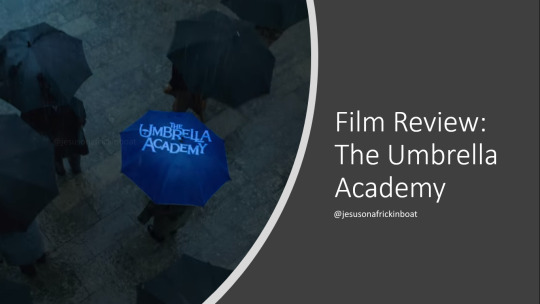
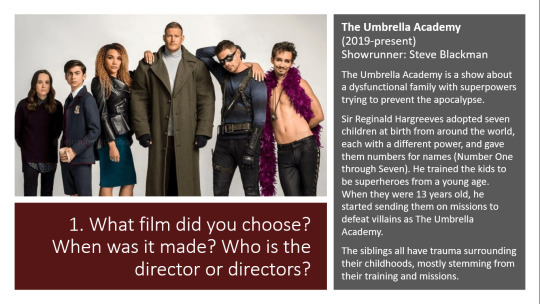

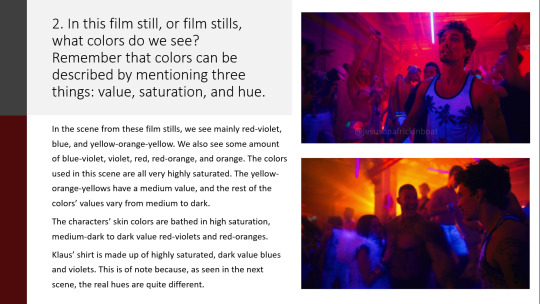


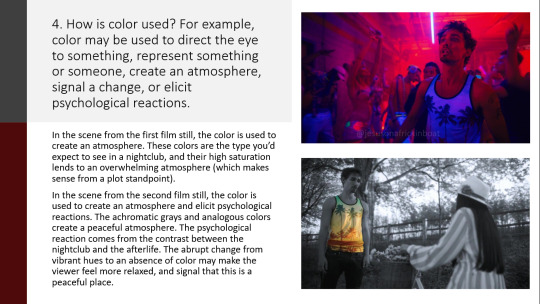
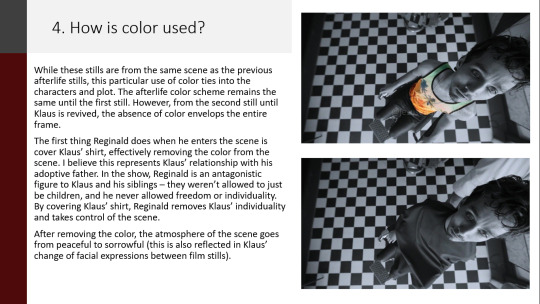

Film Review: The Umbrella Academy
Season 1, Episode 7 “The Day That Was”
One of my projects in Color Theory this semester was called Film Review. The assignment was to pick one or more stills from a movie or TV show and answer five questions about how color was used during the scene(s). I chose the Klaus-centric rave & afterlife scenes from s1 ep7. Honestly, I probably wrote a lot more than actually necessary for the assignment 😂 The black & white except-for-Klaus’-shirt afterlife scene was actually the first thing I thought of when the teacher gave us the assignment, mostly because I’ve been trying to figure it out for 3 years now. Obviously with the new revelation about color in the afterlife, I finally have what I’d call an answer (though I guess could still be labeled as a theory). But! I did this assignment back in April, so these are my observations/theories from then.
Image ID below the read more (due to length)
[Image ID: nine powerpoint slides.
Slide 1: an image of a season 1 title card that is a birds eye of people dressed in black holding black umbrellas, with one holding a blue umbrella that says “The Umbrella Academy” standing in the rain. The slide says “Film Review: The Umbrella Academy. @jesusonafrickinboat”
Slide 2: a season 1 promo image of Viktor, Five, Allison, Luther, Diego, and Klaus. The slide title reads, “1. What film did you chose? When was it made? Who is the director or directors?” The body text reads, “The Umbrella Academy (2019-present) Showrunner: Steve Blackman
The Umbrella Academy is a show about a dysfunctional family with superpowers trying to prevent the apocalypse.
Sir Reginald Hargreeves adopted seven children at birth from around the world, each with a different power, and gave them numbers for names (Number One through Seven). He trained the kids to be superheroes from a young age. When they were 13 years old, he started sending them on missions to defeat villains as The Umbrella Academy.
The siblings all have trauma surrounding their childhoods, mostly stemming from their training and missions.”
Slide 3: a season 1 screenshot of 13 year old Luther, Diego, Allison, Klaus, Five, and Ben lined up in their uniforms after the bank heist. The slide title reads, “1. What film did you chose? When was it made? Who is the director or directors? (cont.)” The body text reads, “I specifically chose film stills from Season 1 Episode 7 ‘The Day That Was’ (2019) Episode director: Stephen Surjik
The film stills I chose are from sequential scenes that follow of the siblings, Klaus (Number Four), whose powers have to do with the dead. At this point in the show, he is getting sober after a life of drugs (which dampen his powers).
In short: Klaus goes to a nightclub to find one of his brothers and dies after being thrown to the ground, hitting his head on the concrete floor. He goes to the afterlife where he meets God (who doesn’t like him) and talks with his adoptive father. Klaus then comes back to life.”
Slide 4: two season 1 screenshots from the rave scene. The first shows Klaus with Ben behind him and people dancing around them. The second shows Klaus, Luther, and the girl Luther brings home from the rave with people dancing around them. The slide title reads, “2. In this film still, or film stills, what colors do we see? Remember that colors can be described by mentioning three things: value, saturation, and hue.” The body text reads, “In the scene from these film stills, we see mainly red-violet, blue, and yellow-orange-yellow. We also see some amount of blue-violet, violet, red, red-orange, and orange. The colors used in this scene are all very highly saturated. The yellow-orange-yellows have a medium value, and the rest of the colors’ values vary from medium to dark.
The characters’ skin colors are bathed in high saturation, medium dark to dark value red-violets and red-oranges.
Klaus’ shirt is made up of highly saturated, dark value blues and violets. This is of note because, as seen in the next scene, the real hues are quite different.”
Slide 5: two season 1 screenshots from the afterlife scene. The first shows Klaus and God, a little girl on a bike, Klaus’ shirt is the only thing that still has color. The second shows Klaus looking up at Reginald in the barbershop scene, there is no color in the entire scene. The slide title reads, “2. In this film still, or film stills, what colors do we see? Remember that colors can be described by mentioning three things: value, saturation, and hue.” The body text reads, “In the scene from the first film still, we see mostly grays that vary in value from light to dark. There are three colors present: orange, yellow, and green-blue. All three colors are highly saturated. The orange values vary from dark to medium-light. The yellow values vary from medium to very light. The green-blue values vary from dark to light.
In the second half of the afterlife scene, Klaus’ shirt is covered by a black cape, removing all color from the scene. From that point until the end of the scene, there are only achromatic grays with a range of values from dark to light.”
Slide 6: two season 1 screenshots, one from the rave scene, one from the afterlife scene. The first shows Klaus with Ben behind him and people dancing around them. The second shows Klaus and God, a little girl on a bike, Klaus’ shirt is the only thing that still has color. The slide title reads, “3. What kind of palette do we see? Did the filmmaker use a known color scheme, such as monochromatic, analogous, complementary, triadic, tetradic, or split complement? Is there a noted absence of hue? Or has the filmmaker thrown in almost every hue in the rainbow?” The body text reads, “In the scene from the first still, the filmmaker didn’t use a known color scheme. We would call it a ‘Half Wheel’ palette.
In the scene from the second film still, there is a noted absence of hue except for Klaus’ shirt, which uses an analogous palette.”
Slide 7: two season 1 screenshots, one from the rave scene, one from the afterlife scene. The first shows Klaus with Ben behind him and people dancing around them. The second shows Klaus and God, a little girl on a bike, Klaus’ shirt is the only thing that still has color. The slide title reads, “4. How is color used? For example, color may be used to direct the eye to something, represent something or someone, create an atmosphere, signal a change, or elicit psychological reactions.” The body text reads, “In the scene from the first film still, the color is used to create an atmosphere. These colors are the type you’d expect to see in a nightclub, and their high saturation lends to an overwhelming atmosphere (which makes sense from a plot standpoint).
In the scene from the second film still, the color is used to create an atmosphere and elicit psychological reactions. The achromatic grays and analogous colors create a peaceful atmosphere. The psychological reaction comes from the contrast between the nightclub and the afterlife. The abrupt change from vibrant hues to an absence of color may make the viewer feel more relaxed, and signal that this is a peaceful place.“
Slide 8: two season 1 screenshots from the afterlife scene, taken seconds apart. The first shows Klaus sitting on a chair in the barbershop, looking upwards, his shirt is the only thing with color. The second shows Klaus sitting on a chair in the barbershop, his gaze moved downwards, covered by a black hairdresser’s cape, with Reginald partially seen in the background. The slide title reads, “4. How is color used?” The body text reads, “While these stills are from the same scene as the previous afterlife stills, this particular use of color ties into the characters and plot. The afterlife color scheme remains the same until the first still. However, from the second still until Klaus is revived, the absence of color envelops the entire frame.
The first thing Reginald does when he enters the scene is cover Klaus’ shirt, effectively removing the color from the scene. I believe this represents Klaus’ relationship with his adoptive father. In the show, Reginald is an antagonistic figure to Klaus and his siblings – they weren’t allowed to just be children, and he never allowed freedom or individuality. By covering Klaus’ shirt, Reginald removes Klaus’ individuality and takes control of the scene.
After removing the color, the atmosphere of the scene goes from peaceful to sorrowful (this is also reflected in Klaus’ change of facial expressions between film stills).”
Slide 9: two season 1 screenshots, one from the rave scene, one from the afterlife scene. The first shows Klaus with Ben behind him and people dancing around them. The second shows Klaus and God, a little girl on a bike, Klaus’ shirt is the only thing that still has color. The slide title reads, “5. How does color work with the other elements of the film? For example, do the colors seem to work in harmony with the sound and action? Or do color choices seem intentionally incongruous?” The body text reads, “In the scene from the first still, the colors work in harmony with the sound and action. People move chaotically around the club to very loud electronic dance music, which works together with the high saturation colors. As Klaus, an addict in the midst of getting sober, walks through the nightclub filled with dancing and drugs, the atmosphere is overwhelming. The colors, sound, and action are working in harmony against Klaus, whose actions are incongruous with the other elements.
Throughout the scene in the afterlife, an accordion song plays. It gives the afterlife a peaceful, old-timey feel. Compared to the nightclub, Klaus is more relaxed and at peace during the first half of the afterlife scene. The colors work in harmony with the sounds and actions.” /End ID]
#tua#The Umbrella Academy#klaus hargreeves#tua spoilers#tua s1#tua s1 spoilers#tua s3#tua s3 spoilers#<-- just to be safe#reginald hargreeves#tua theory#tua analysis#color analysis#film analysis#I really hope I did the image IDs okay let me know if I missed anything#long post
48 notes
·
View notes
Text
TENTATIVE ANALYSES: THE UMBRELLA ACADEMY
Episode 1: We Only See Each Other At Weddings And Funerals
Fifth and penultimate in the current rooster of the Tentative Analyses, here's The Umbrella Academy.
The Umbrella Academy is a Netflix production that debuted with its first season in 2019, with the second coming out in 2020. It is based on a comic book series of the same name by Gerard Way and Gabriel Bà, published by Dark Horse Comics.
NARRATIVE STRUCTURE
This episode follows a three-act-structure to introduce us the characters, setting, and conflict.
1. Act 1, Setup: in the first scenes of the episode, we are presented with the common backstory for all characters (babies mysteriously born from one-day pregnancies and endowed with magical powers, sold by their families to an eccentric billionaire who wanted to turn them into a superhero team) and the separated lives they are currently leading as adults. They are brought together by the Inciting Incident, the death of their father, and gather to their childhood home for the funeral services.
2. Act 2, Rising Action: the Hargreeves siblings meet each other, and it's immediately shown that there are tensions amongst them; especially Diego, the others make awkwards attempts to at least be cordial to each other. In this section, we get two important elements that will lead the plot from now on: Luther's suspicion that their father's death might have actually been caused by one of them (pissing off everyone, unsurprisingly) and the return of Number Five, the long lost brother who has travelled into the future ("it's shit, by the way", but he doesn't elaborate more). The second section has its own climax at the actual funeral, where the tensions building between Luther and Diego explode in a physical fight between the two around their father's ashes.
3. Act 3, Resolution: at the end of the ceremony, the siblings go their separate way again. We follow three of them: Viktor*, Diego+Klaus, and Five. The first leaves as awkwardly as he had arrived. The second group presents 1) a hint that Luther might have been onto something with his suspicions, because Diego has the vanished monocle that triggered them in the first place and 2) the last of the Hargreeves siblings, the deceased Ben, who can be seen only by the medium Klaus. The third continues the 'time travel' plotline, as members of a mysterious organization pursue him. Five easily dispatches all of them, and then goes to Viktor, the sibling he was the closest too while growing up, and confides him a real bomb: the world is going to end is eight days, and he has absolutely no idea why and how to stop the process. End of the episode.
NARRATIVE TECHNIQUES
The most notable narrative device is the use of multiple flashbacks interspected with the episode, which show us the past of the Hargreeves siblings. They shed light on the kind of education that Reginald imparted on them, and the kind of situations they found themselves in since they were very young (their attack on the bank robbers was brutal, not the kind of things you would ever show to children, let alone let them partecipate in; and keep in mind that back then Five was a regular member of the group, so they were at least thirteen and likely even younger), explaining how they came to the familiar situation they're in as adults.
In general, this episode is very skillful in avoiding falling into as-you-knows by setting up reasonable causes for the explainations: we learn that Viktor wrote a book that aired family secrets to the world via Diego angrily confronting her about it when they saw each other for the first time in a long while, we learn about Allison's divorce when she talks about it to Luther, who has been with no contact with the others for at least several months.
Another notable trait of the show is its use of music. The siblings are introduced to variations on The Phantom of the Opera, each in their 'everyday lives'. The fight between Five and his pursuers is set to Istanbul (not Costantinople): a song about the impossibility to truly go back to a place because something inherent to that changed plays for the fight of a grown man in the body of a young boy, who has returned to his family and the places of his childhood but by now both he and his siblings are very changed people.
And then there is the iconic I think we're alone now: a song about children getting a brief respite from the attention of the grownups to have some time to themselves (something the Hargreeves siblings rarely truly had, since Reginald had cameras in their rooms).
Lastly, there is the sheer whimsy of the setting of the siblings' household. The Hargreeves kids were born in 1989 and the show is set in our days, but have you seen Reginald Hargreeves? He dresses like a Victorian gentleman, always elegant, complete with a monocle. His mansion follows the same style. He has a talking chimpanzee for a butler, tell me if it doesn't seem taken straight out of some 1800' s story about an eccentric rich adventurer. The mother of the children has the looks of a '50s star actress and the behaviour of a '50s devoted housewife; at least she's justified by being a robot. The whole setting is bizarre and unreal, and this makes already clear that the show won't be taking itself too seriously.
CHARACTERS
Thw whole casts presents itself as both a representation of how abuse work and a deconstruction of the 'superhero team'.
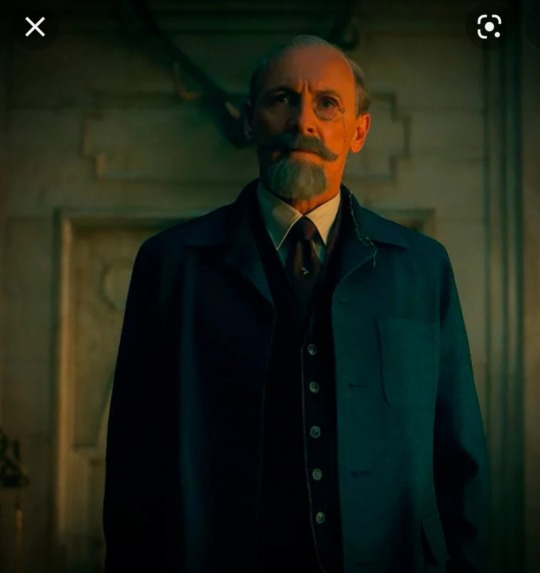
Reginald Hargreeves, present only in flashbacks, has the Mentor archetype, the one who trains the kids to use their power and also spouts things like the Power of the Team that goes beyond that of the lone individual, something that usually goes in the mouth of the good guy; but he is also an abusive father figure, to almost black comedy levels. He literally bought the children; save for training them, he refused to pay any attention to them; he forced them in dangerous situations; and excluded Viktor as 'not extraordinary enough'.
The siblings, once reunited for the funeral, show themselves to be a representation of how children react to abuse growing up and a deconstruction of superhero archetypes.
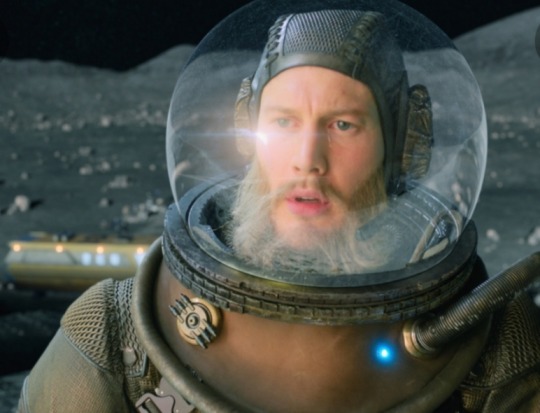
Luther deconstructs the Hero archetype: he acts like he was a leader of sort to the team (maybe because he had the super strenght, maybe because he was the one who listened to Reginald the most, maybe because he was the only heterosexual cisgender white male available between the siblings), but this position isn't recognized by ... pretty much anyone: Diego openly mocks him for this, the rest of the siblings, while less hostile, still angrily protest and ignore him after he implied that some of them might have killed their father. They don't show the minimal inclination to let him 'lead' them. Luther represents the 'Golden Child': the one who believes that acting like his father wants him to, he will get some of his affection and respect (spoiler, it doesn't work).
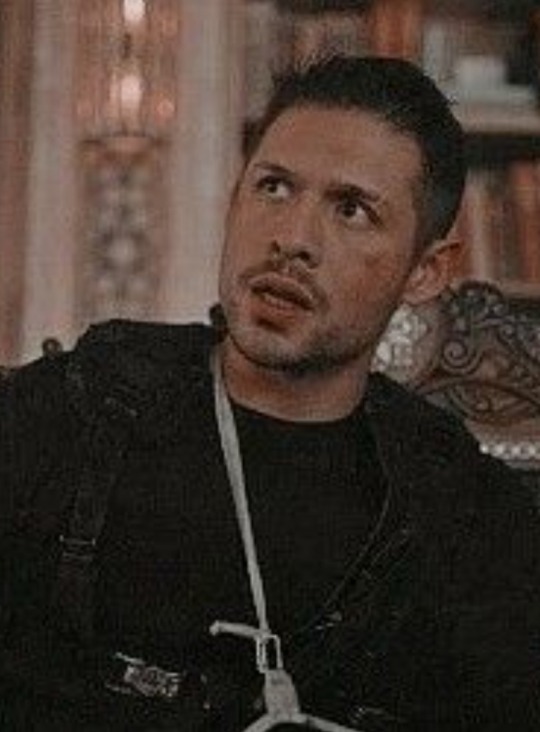
Diego deconstructs The Lancer (the archetype that is paired with the hero and has the 'job' of being a contrast to him, often in terms of power and characterization). His powers are the finesse of a perfect knife-throwing to contrast Luther's immense physical strenght, he acts angrily and snidely in contrast to Luther who at least tries to stay calm and collected. While the Lancer archetype played straight would have these moment of sarcastic remarks as comedy, Diego's come across as actual verbal attacks, aimed at his siblings' insecurities to punish them for perceived offenses. He rejects Viktor for the book without giving him a chance at explaining himself, he mocks Luther for having suspicions he doesn't agree with and physically attacks him at the father's funeral for his attempts to keep the thing vaguely formal - even using a knife -, he mocks Allison for her failed marriage because she dared to criticize him for his excessive violence. The actual comedy when Diego is involved comes out when others make fun of him for ... basically the lone brooder archetype he plays into. Diego represents the child who has recognized the abuse, who wants others to recognize it (and rightfully so), but that very abuse stunted his emotional capabilities so much that he has trouble recognizing that his siblings' emotion can be more complicated, refuses any perspective but his own and can only express himself with scorn and violence.

Allison, through in this episode she's more out of focus than some of her siblings, represents the Heart archetype: usually a female and the love interest of the hero, she's the one skilled with emotions and has the 'job' of helping everyone with theirs, while being the most calm and balanced. While Allison tries her hand at the job - she greets Viktor kindly despite also being involved in his book, she chats affectionately with Klaus and Luther, she tries to get Diego to calm down - her efficiency is quite low, can't prevent the fights or bring a reconciliation, and is herself the target of scorn. She represents the abused child who tried to take a more 'mature' role for their siblings, but failed due to that abuse taking a toll on her emotional development.
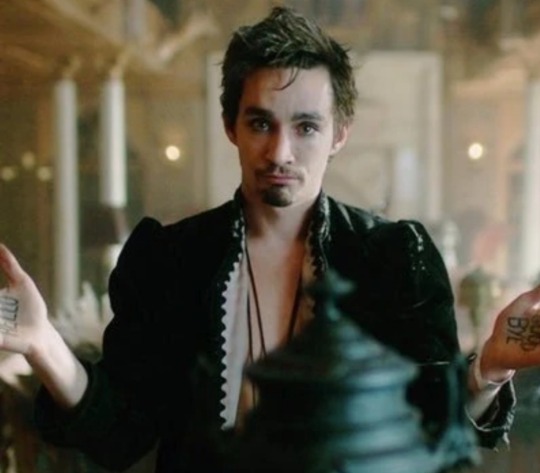
Klaus deconstructs the Jester archetype: while his antics are genuinely hilarious for the audience, they annoy his siblings, who end up seeing him as some idiot that can't take things seriously and gets no respect. Klaus does have a serious side: despite having joked at Luther's suggestion to do so, once he's alone actually tries to contact their father's spirit. He fails, and ... that's probably it. Klaus represents the abused child who was scared of the ridiculous pressure his parent put on him, and reacted by acting as someone from whom one can't expect nothing, stunting his actual capabilities in a self-fulfilling prophecy. He is the one who tries to escape from the expectations of reality and his painful past, as shown in his use of mind-altering substances.
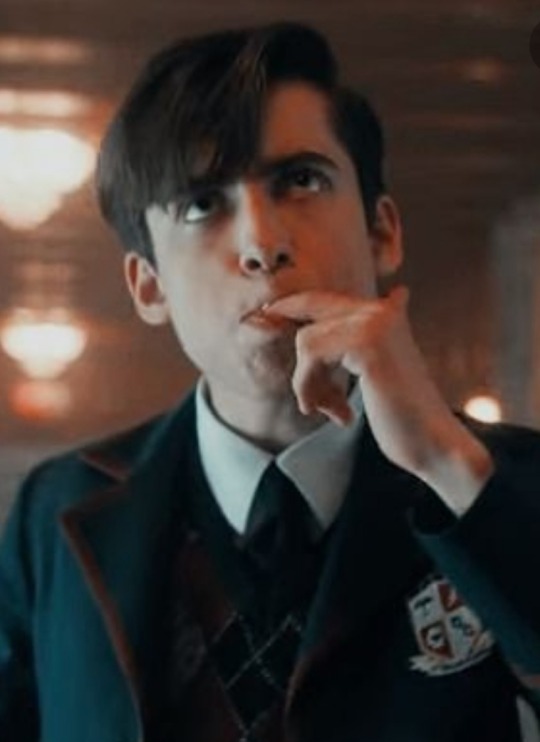
Five has relatively little screentime compared to his siblings, but we can start to see him as a deconstruction of the 'Smart Guy' archetype: due to his time-traveling, he has more knowledge of the bigger plot than his siblings, but he fails to properly explain himself to them; only at the end, while talking with Viktor, he admits what the problem is and his unability to solve it. Five has lived most of his life separated from his family, and here we see the littlest of his relationship to Reginald; but sure he wasn't distraught, casually commenting about missing the funeral.
Ben is seen in a flashback, that shows him as the one with the most impressive power and yet the most reluctant to use it, to which his siblings show no sympathy, insisting that it's his duty. I'll return to his character in a later analysis, as this is too little for me.
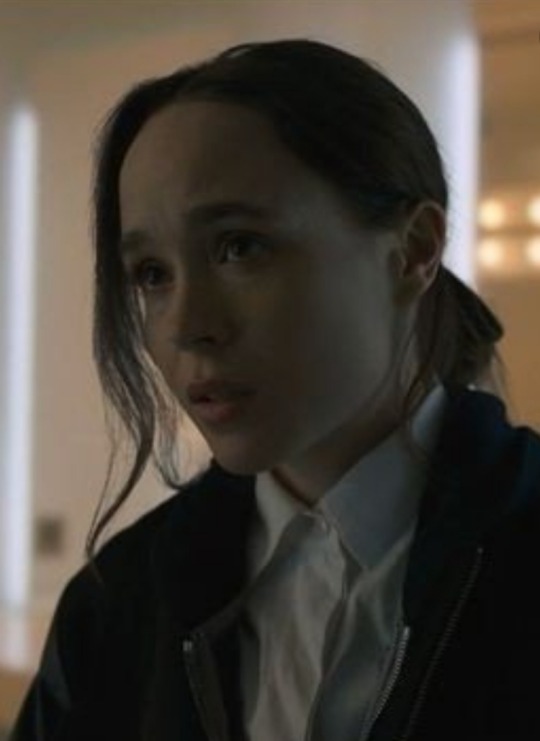
Lastly, Viktor, the 'Everyman' archetype. He was the only one not to get a power, and as such, he was excluded from the superheroing; since this was the main activity of his siblings, this means he was cut off from them. This came with a side helping of blame: Reginald treated him as if it was his fault that he didn't have any powers, and did nothing to help him with his feelings of exclusion. As an adult, he appears to have a rather dull life, not as glamorous as some of his sibling and not as difficult as others'. He represents the 'Scapegoat' child, the one who is treated by the abuser as the openly inferior one.
The kids' mother, Grace, is literally a robot built to take care of them according to Reginald's orders, and she appears to have little to no awareness of what's going on, maintaining her 'perfect, smiling housewife' attitude even during the funeral.
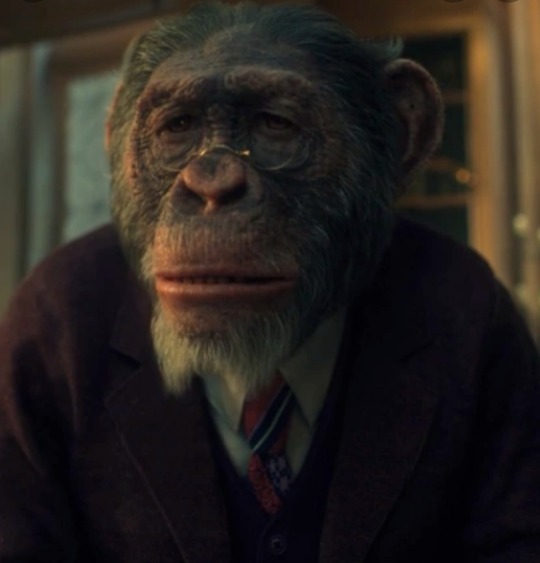
Pogo is a more accurate representation of an 'accomplice' parent: a caregiver paired to the abusive one that doesn't directly abuse the children, might even be good to them, but does nothing to stop the mistreatments either and whose solution to the problem is trying to get the children to behave and give them hollow reassurings that the other parent loves them very much. Thus, the abusive person is not held responsible, and the children are required to be more adult than their parent.
THEMES
This first episode introduces the two themes that will carry for all of the series: what constitutes a family and abuse, both entwined due to Reginald's A+ parenting.
I've seen a couple of funny comments, here on Tumblr, about the Umbrella Academy being the opposite of the Found Family trope, a Forced Family: here's a bunch of people that maybe you wouldn't even interact with normally, whom you know a lot of intimate details and who know a lot of intimate details about you, now go along and be each other's support (... do I get questions on my mental health if I notice that this is basically the concept of a normal family?).
The point is: the Hargreeves weren't working together because they liked each other or played off each other's strenghts and weaknesses, they're together because seven women were thrown in enough of a loop for the unnatural pregnancies that they were fine with giving away the unexpected and unwanted babies for some money. So, they were treated as commodities from the get go; Reginald only continued from there, raising them as his personal squad of child soldiers and failing utterly to provide them with any kind of affection and emotional support. This had a devastating effect on them: most have had trouble with aspects of the adult life such as work and relationships, Klaus even became an homeless addict; all of them save Luther (Five and Ben are out due to outside forces) eventually drifted away from Reginald, thrashing whatever expectations he had from them. But in the process, they also drifted away from each other: the psychological scars left on each of them mean that they weren't able to stay close to the siblings that were in the same situation, but reacted in different, 'incomprehensible' ways. Now they are brought together by their father's death, and there's no true reunion, they begin to drift away again. The one subversion to this status quo is Five, who returns after 17 years of absence and, after antagonizing his former teammates, goes to confide in Viktor, the non-powered one with whom he had the best relationship growing up, precisely because he saw him as something of an 'outsider' to the family.
SYMBOLISM
• Clothing: each of the shown Hargreeves has a very different fashion style that says a lots of things about them.
1. Reginald dresses like a Victorian gentleman about a century after the end of the Victorian era. This goes to illustrate him being detached from most of society and his stern, antiquated mindset.
2. Luther wears muted colors and baggy clothes, to conceal [spoiler], showing how much he doesn't accept himself and fears his siblings' reaction to the fact that he's not perfect.
3. Diego constantly goes around in black, often in his clothes as a vigilante, something Allison even remarks on. He has chosen a 'tough' persona for himself, and he won't drop it, especially in front of his family.
4. Allison always looks very elegant and fashionable, ever the stylish actress ready for a photoshoot. She tries to put on a confident, charming persona.
5. Klaus wears eye-catching, eccentric clothes, in one occasion even a skirt. He has little concern for what society deems appropriate.
6. Five has his old school uniform, the one Reginald chose as the Umbrella Academy. He's the one at the moment most concerned with the world-ending threat - especially because until near the end is the only one who knows about it.
7. Viktor wears frumpy, baggy, nondescript clothes: he's used to stay unobserved.
• The Umbrellas: due to the name of their organization, they represent the influence Reginald had on the siblings; he literally had this symbol tattooed on them when they were just children, despite the process being painful for them. The only one who didn't receive a tattoo was Viktor, who tried to draw an umbrella on himself with black crayon just to feel like a part of his family. During the funeral scene, it's raining and they're all under umbrellas, save for Diego.
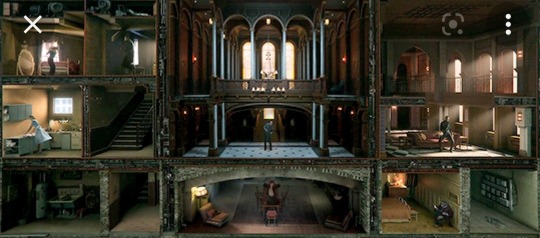
• The Dance Scene: the siblings' reaction to the song Luther puts on is a very effective way to represent how their relationship works. They make sure that nobody is around to see (Diego even locks the door) and start dancing. Each has a different style: Luther moves around awkwardly due to his huge body, Diego surprisingly breaks in some really cool moves, Allison dances with a pink feather boa like she's on an actual stage, Klaus waltzes with his father's funerary urn, Viktor has awkward, stilted moves. Every sibling is in their childhood bedroom, except for Viktor: the one who always felt excluded from the family, and dances in the hallway. It serves as a brilliant visual metaphore for the way the siblings are ultimately similar people whose big differences are mostly superficial (their different dance styles), but at the same time are so closed off each other (their being in separate rooms) that they can't see it.
RIFERIMENTI
• David Castañeda, Diego's actor, says that the moves he did during the dance sequence were inspired by 90's clips like Moving Color and Will Smith dancing.
* in the show proper, at this point he's called Vanya. Elliot Page, the actor, came out as trans between seasons two and three, and recently it has been revealed that the character will follow suit instead of leaving it crosscast. So, I think the best thing to do is to avoid what's now a deadname in the analysis, even if it's the one used by the characters.
And this was all for the first episode. Thanks for reading so far.
If you like my writing, would you please consider offering me a ko-fi?

#tua#the umbrella academy#tua meta#tua analysis#tua reginald#tua luther#tua diego#tua allison#tua klaus#tua five#tua ben#tua viktor#tua pogo#tentative analyses#tentative analyses: the umbrella academy
41 notes
·
View notes
Text
Viktor Hargreeves' entire life was dictated through that rumor and that fact lives in my brain the way a monkey lives in any enclosed space
Like, "you think you're just ordinary" is such a broad order to follow! Not only does it stop him from realizing he had powers, but it also stops him from thinking there's anything even conceptually unique about him.
It stopped him from seeing himself as talented with the violin because he has an ordinary level of skill in it. He can't be into girls because that's considered abnormal in society. He can't be trans because he's just ordinary.
Every season is him breaking out of the rumor's hold, little by little. Realizing things about him that had been kept on chains for years.
#tua#the umbrella academy#umbrella academy#viktor hargreeves#Viktor Hargreeves analysis#character analysis
212 notes
·
View notes
Text
The fact Reginald didn't have Allison rumour Viktor as 'You think you're normal' or 'You think you don't have powers' but instead went with 'You think you're ordinary' is so insidious.
Because it didn't just affect Viktor's belief around his powers, it affected his whole world view. You can't excel in anything if you think you are in no way special or distinct. He had the talent to be first chair (yes his power helped but his power couldn't make bad playing appear good, he still had to play well) but he didn't believe he did and so was stuck at third chair. Even in teaching he talks himself down when Harold compliments him, saying his next student could probably teach him (but if that were the case why would that student's parents not just get another violin tutor?). It's also part of why he falls under Harold's spell, because he's ordinary and along comes this guy who seems great and thinks he's special, something Viktor literally cannot believe he is because of the rumour, so how can he not be won over by that attention?
I also believe this was completely intentional, because believing he is in no way special, coupled with being numbed by his medication ensures he will be a docile child and easily manipulated. Seeing as Reginald didn't predict the siblings would leave as adults, he had intended to control Viktor his entire life.
143 notes
·
View notes
Text
Something interesting about Five that I've noticed as I've been watching the show is that he acts unemotional, especially toward his siblings (threatening to kill them when he gets upset, ignoring their relationship problems, that sort of thing) but he does everything for his family and people he doesn't know. Over the almost two seasons I've watched, he does everything in his power to prevent the apocalypse from happening and his response when people tell him "who cares?" is "7 billion people are going to die". When he thinks he doesn't have a choice, he makes a deal with the Handler to kill 12 people in exchange for his family and the world's safety even though he hates killing. When that falls through, Five sees another version of himself at the risk of no longer existing to get a time machine. He may be an older man, but that 13 year old version of him that was taught to help people no matter what is still there.
#probably going to do more character analysis' of the hargeeves because they are so complex#five hargreeves#the umbrella academy#tua#nerdygirlramblings
88 notes
·
View notes
Text
hey I know its 2024 but how did we just never question axel having a wholeass bow and full quiver of arrows
#does he keep them in the milk truck like w#yeah im watching That Episode#ikea fam what happened where was our analysis of that#tua the swedes
23 notes
·
View notes
Text
at a family reunion-esque dinner an i just found out i have the cilantro soapy gene when i tell you i yelled at everyone “WHO WAS IT” so damn loud. anyway to cope here’s tua cilantro soap gene headcanons. please read i worked so hard XD
luther- yes and he’s sad about it :(
diego- no but he makes fun of luther
allison- nope. kind of convinced that it’s not real and everyone just made it up as an inside joke she wasn’t in on as a kid. she’s wildly insecure and bitter about it and is really passive agressive when it’s brought up
klaus- no but he is infinitely curious about what it tastes like and when he was 9 he ate a sliver of a bar of soap and cilantro at the same time to simulate the experience so he could empathize with his siblings. he cried and ran to grace who was confused but supportive and helped him wash his mouth out
five- yes but he doesn’t care. his food opinions and vibes are Very Fucked Up and he used to eat rocks anyway so. you cannot tell me this man didn’t eat rocks in the apocalypse drunkly because he was so hungry i’m sorry. also like cardboard poor baby
ben- thinks he does but he doesn’t. this is og ben bc i’m always posting about him he is the real ben hargreeves to me but this goes for s! ben too. and idk how to explain it either
viktor- yeah but he likes it. he’s like mmmmm and diego is horrified everyone is losing their minds and he’s like yummy :D my favorite
lila- yes but pretends she doesn’t because she’s seen diego make fun of luther for it. he’s all “extra cilantro right babe B)” and she’s like “hell yes” but is sad inside. if she just told him he would never order cilantro on anything again in case she wants to eat some of his food but she’s too far in at this point
sloane- no. she eats all of luther’s cilantro for him though <3
reginald asshole hargreeves- yes and i hope He Fucking Suffers. stupid ass alien tastebuds or whatever. he pretends nothing’s happening because he thinks it’s a human thing and he doesn’t want to blow his cover
grace- she can’t eat, but is aware of the chemical that makes it taste/smell like that because of her advanced sensory hardware and software
the handler- no. she puts cilantro in five’s food because she knows he has the gene. she thinks he’s on to her and picks it out but he just has no reaction. he just doesn’t care lmao. she’s playing these fucking mind games 4d chess and he’s like absentmindedly chewing on checkers
pogo- nope.
#tua#writingastraightanswer#fuck you ill do random ass characters if i want#luther hargreeves#diego hargreeves#allison hargreeves#klaus hargreeves#five hargreeves#ben hargreeves#viktor hargreeves#cilantro soap gene#the umbrella academy#sloane hargreeves#lila pitts#the handler tua#phineas pogo#i need to make pogo analysis rn#fucking enjoy ig
88 notes
·
View notes
Text
okay but like, five being the commission's founder completely breaks the series the moment you examine it critically. namely because since it's five's future self, who has experienced the same things our five has (we can assume this is true because our five got the tattoo to complete the loop), why the hell didnt he use the knowledge he had to avoid the grandfather paradox from occuring by eliminating Harlan? Hell, why didnt he use his future knowledge to just avoid the series' events all together and ensue the original 2019 apocalypse happens. there is no need for commission founder!five to worry about completing the loop, no need to worry about maintaining his personal timeline SINCE HE BUILT A ROOM THAT IGNORES PARADOXES ALL TOGETHER
like!!! yeah its a cool idea but!!! it asks a lot more questions than it answered. questions that will likely never be answered since the commission doesn't exist because reginald reset the universe and everyone's bodies reset (and are without powers) so its not unreasonable to assume that our five can no longer follow in his other self's footsteps and establish the commission.
#sorry this plot point equal parts amuse and infuriates me because its cool!!! it really is!!! BUT IT FALLS APART#tua#the umbrella academy#tua s3#tua s3 spoilers#tua spoilers#five hargreeves#number five#tua meta#tua analysis
101 notes
·
View notes
Text
you want me to forgive my parents? the thing that killed luther hargreeves?
#this is a Joke obv#i’m writing a tua analysis on manipulative parents and i’m blown away by how much hold reggie has on his children. ouchie#luther hargreeves#reginald hargreeves#the umbrella academy#tua
191 notes
·
View notes
Note
PLEASE tell us about klaus and reggie similarities
Thank you!!
I think in general Klaus’s and Reggies relationship is much more interesting than the other siblings, not only in season three but when they speak in season one in the void, they talk well with each other. I think specifically in season three we get to see their dynamic more clearly, and while yes, it’s mainly built off of Klaus’s want to be loved and Reginald seeing him as an east target, I think generally they’re more similar than the others are to Reggie.
Both Reg and Klaus’s character arcs and story’s stem off of their respective partners, the brellies only exist because Reg needed them to get Abigail back, while Klaus losing Dave pushed him to put everything he struggles with aside in order to get Dave back, and while he starts to accept that his Dave is gone, I think given the opportunity to see him again, he’d take it.
I also generally think they have similar personalities, in terms of having no filter or awareness of how their actions affect others, and their knowledge for trivial things/way of getting people on their side.
I think because of these similarities, it makes Klaus a much easier target for Reginald, because it’s easier to get in his head, he knows his weak points because they’re the same as his own.
On that note, fuck Reginald, but he’s also a very interesting character that I think a lot of the fandom misses out on because of daddy issues jokes or people simply taking the fact he’s a shitty person without actually looking into how he does it, which you can see makes him a much worse person, and gives loads more opportunities for angst!!
Thank you for the asks! Keep them coming I love them <333
#Reginald’s A+ Parenting#I hate that man so much but understanding his character is fantastic for analysis and stories#klaus hargreeves#the umbrella academy#reginald hargreeves#number four hargreeves#number four tua#dave katz#klaus x dave#klave#david katz#incorrect klave talks
53 notes
·
View notes
Text
I’m in love with everyone that acknowledges that Brelly Ben was shit <3 (said with love)
Brelly Benny, in the first season, does only one thing: he controls Klaus. He feels powerless for being dead and of course he cares for Klaus and is somehow trying to help him with his addiction, but in his powerlessness, he is all the time trying to make Klaus do what he thinks is best.
And, I get it! It must suck to be dead and see the only person who you can talk to living like Klaus used to live. I get how fucking mad he must get when Klaus lies, saying he is against killing his mom or that he was not able to time-travel. Or when he pretends he doesn’t know who your crush is just for you to see she’s not all that.
Klaus & Ben are both pretty shitty to each other. And they only have each other.
Benny is a bossy guy. He likes to tell Klaus what to do, what he’s done wrong, how shitty he is. He fucking forces himself in his body (hello everyone who is hating on Allison this season), Klaus says he feels violated. Later Ben is waiting for him to fall asleep so he can fucking steal his body and Klaus has trouble getting him out.
We see Ben deciding to not help Klaus, but every time Klaus goes against his wishes he fucking bullys him into listening to him os he fucking forces him to do what he wants.
Benny is exacly a pushy guy towards Klaus. He would totally use what he knows about Klaus to make him submit.
Klaus don’t want to share Ben with the others. Ben wants Klaus to obey him.
That’s the way they fucking love each other.
And when we get to Sparrow Ben, all this shit, his shit, is everywhere.
He’s also manipulative, bossy, pushy, bitchy and fucking selfish.
We talk a lot about how he “didn’t care” about his siblings deaths, but we don’t talk about how dead Ben makes Klaus’ panic attack about how he feels trapped. to a guy who’s kidnapped and being tortured lol.
The difference between Sparrow and Brelly Ben is not about how bitchy or selfish or mean they are. It’s about c o n f i d e n c e.
Sparrow Ben is afraid of showing himself. Ben6 is not, because he is fucking dead and has only one person to judge him and this person is Klaus who no one takes seriously. (And who he knows love him no matter what)
Sparrow Ben was once number one and for some reason (that I’m sure we’ll see next season) he was demoted. He has a portrait of him on the wall to remind him of who he could’ve been. He feels like a failure and is trying to show his father, and himself, he actually deserves to be number one, to lead.
He fucking hates himself. He’s full of shame. He probably feels like no one would love him.
You know when someone with rejection issues fucking sabotages their chance of getting close to people for them to not have a chance to be rejected? Yeah, that’s Ben2 dealing with the umbrellas.
Ben2 thinks he needs to earn affection, so of course he freaks out when those strangers seem to love him for nothing. And of course his impostor’s syndrom gets worse when they keep comparing him to some perfect ghost.
And then we have Klaus.
Who tells him all of the shitty things about Ben6. Things that are true about Ben2 as well.
When Ben2 points out that those reasons for him to love Ben6 are all bad things, the point is not really that those are bad things. These are his things. Things that no one loves about him.
And that’s why he opens up to Klaus, because Klaus seems to be able to love not his perfect (and nonexistent) self, but all those flaws that haunt him.
Klaus is looking for belonging, that’s why he feels at peace in the void. He’s always felt out of place. Guess who also longs for belonging and feels out of place? Benny Boy 2.0
I personally see a way healthier potential in Ben2 and Klaus’ relationship than Ben6 and Klaus’ simply because I don’t feel like Ben2 has this much power over Klaus. And Klaus is unable to control his access to the world just as much.
And again, I get how Ben6 could only influence Klaus from all the world and nothing else. And I get why lonely Klaus wouldn’t like to share Ben6 with the world. But I’m dying to see how Ben2 and Klaus will deal with each other sober.
after all I believe they are soulmates and Ben2 and Ben6 have the same soul.
#look at me hiding a#horrance#dynamics analysis#in a#Ben Hargreeves#tua s3 theories#and yes i dont think sparrow ben is that bad at all#i can totally emphatize with him#a lot#sparrow ben#umbrella ben#the umbrella academy#tua#klaus hargreeves#klaus x ben#tua season 3#tua s3 spoilers
232 notes
·
View notes
Text
TENTATIVE ANALYSES: THE UMBRELLA ACADEMY
Episode 5: Number Five
NARRATIVE STRUCTURE
Once again, there are different narrative treads that cross and divide from each other.

• The Viktor Business: Viktor continues his romance with Leonard, but Allison is suspicious. She does a little research on him, and finds out ... nothing. Literally nothing, no records besides a short paragraph about his former wood carving employment and address. She brings this lack of findings to Viktor, but he brutally rebuffs her, feeling that she just thinks he's unable to do his own life decisions. So he keeps going on a date with Leonard, and he's so nice, encouraging him to go for first violin since Helen, the one who usually gets the spot mysteryously stopped showing up. Allison meanwhile enters Leonard's own home to investigate him further, but he returns and forces her to sneak away before she can complete the inspection. Back to Viktor: he absolutely nails the trial! The first chair is his, and he runs off to celebrate by making out with Leonard at his house. A strange distortion shows up, raising unnotoced to the storage room ... were we are treated to a shot of Helen's body wrapped up in a carpet.
• Klaus and Diego in mourning: Klaus returns from his accidental time travel, dirty, bloodied, and crying. Turns out, he landed straight in the middle of the Vietnam war, and joined the fighting, finding an actual romantic partner. But the guy has died, leaving him to return to his own time lost in grief and trauma. He is first noticed and then dismissed by Five, and then joins up with Diego, out to get Hazel and Cha-Cha for the murder of Eudora. The two fail, and are summoned to play chivalry for ...

• Five and Luther: there is an expansion on Five's former life. He used to work for an association responsible for the regular flow of time, and he did so by being an assassin who targeted people who would have disrupted it. Luther is shocked and confused, and has to handle an extremely stressed-out Five who wants to solve things by killing the person responsible for the apocalypse. In the end, they decide to stop Hazel and Cha-Cha by tricking them with a false suitcase and then running away with the help of Diego and Klaus, but the Handler, an higher-up at the Commission, intervenes, and strikes a deal with Five.
NARRATIVE TECHNIQUES
There is some foreshadowing involving Leonard's attic: Allison is right about to investigate it, when the master of the house arrives, forcing her to cut her visit short and run away (by the way, the competent and elegant way she pulls it off is a good shorthand to illustrate the training imparted by the Umbrella Academy). This creates the expectation that there is actually something important in the attic; and in fact, at the very end of the episode, we are shown Helen's corpse wrapped in a carpet in there, a cold shower since besides Allison's suspects we really had no reason to think ill of Viktor's caring and understanding new boyfriend. We could at most suspect him to be a creep, but a murderer?
Also, there is a plot twist in the very last scene of the episode: Pogo reactivating Grace, and making sure she remembers something they can't talk about to the children. Whatever might this be?
CHARACTERS
Luther: he dials down by a lot his I Am Number One rethoric, and like every time he does so, he has much more success in whatever he is trying to do. He is mostly involved with Five, and manages to get him to talk about his situation - not by ordering him, but by showing him actual capacity to listen and understand. He puts Five on a much more equal level to himself that he does with the rest of the Academy, and he gets around him more by proposing deals or even blackmail (defenestrating the mannequin) than ordering him around. Still, his somewhat immature way of thinking manifests in other forms, such as, after learning that Five worked as a hitman, seeking reassurances that he only killed 'bad guys'. As if that made all the difference in deciding wheter a life can continue or not! He is shocked and confused at Five bluntly contradicting him, and admitting that he killed, and would still kill, anyone who get in the way of preventing the apocalypse. This is what motivates him to try and put Five on a different path, the thought of preserving those good and innocent people. Who knows how would he have reacted if Five had reassured him that sure, they would have killed only bad people?
Diego: he is on the war path, seeking private vengeance for Eudora's murder. He still tries to go his Lonely Road way, and nearly gets himself killed, only to be saved by an 'in the way' Klaus. On the other hand, he does lend a listening ear to Klaus when he realizes that something is even more wrong than usual with his brother, tries to help him stay out of troubles and comfort him. Like Luther, he actually does better when he steps outside his idea of how he gas to do things.
Allison: she keeps soundly failing at being the Heart. Viktor accuses her of babying him, of not accepting that he is an adult and he can do his own life decisions. Compare the one way Allison snapped at Viktor: she told him that he was an adult and could no longer blame dad for his mistakes. It is possible that the guilt for this outburst manifested in a desire to treat Viktor as the 'little' sibling, and this goes to obfuscate, in Viktor's eyes, the actually good points she is making: that Leonard is sus as hell. Allison, even when rebuked by Viktor, doesn't renounce 'protecting' him to the point of breaking and entering Leonard's house to look for proof of suspicious activity; she's unfortunately forced to leave before she can find it.
Klaus: think he didn't already have a lot of personal issues? Time travel gave him even more! He ended up dumped in the middle of the Vietnam war, a situation known for being extremely traumatizing for its veterans (and an absolute hell for the Vietnamite civilian population, but that's another story). There, he actually met someone he could call a true love, not a convenient relationship for having a place to stay; and then he promptly loses that person. He is brought back to his time bloodied and screaming, picks up fights in vet bars who can't recognize that he was there too, and seeks comfort in his siblings (no success with Five, more with Diego who is also reeling from the loss of a loved one).

Five: he keeps being absolutely focused on his mission, but in the light of losing his only lead, he is more open with his siblings about it. We get to know more about his past: the way he literally grew up and aged in absolute isolation in a post apocalyptic world after the traumatizing discivery of his siblings' corpses, an event that made him desperate enough to accept to become an assassin for the Commission, a shady organization that pursues the 'correct flow of time' at any cost. He never left the idea of going back to save his family and the whole human race, and he finally got his wish; but now he doesn't know what to do, and ends up making another deal with the Commission.
Ben: he says 'wheeeee!' as Diego and Klaus drive a truck towards Hazel and Cha-Cha. This is getting embarassing.
Viktor: he can no longer take his meds, but actually seems so much better! He speaks his mind to Allison, has a pleasant date with Leonard, and gets even convinced to partecipate to the auditions for first chair. And he gets it! He experiences a much better feeling with the music he is creating, and his performance is so much more convincing. He goes to Leonard to celebrate, and they take their relationship to the next level! Still, he does have a more negative side: when dismissing Allison, bringing up the daughter she can't see is truly a low blow (especially considering that he doesn't know what Allison did, for all that he knows Patrick is denying custody out of spite). The anger he has felt at his family for so long still hasn't found an healthy outcome, even if he is more outspoken.
Leonard: if he acted slightly suspicious last episode, here we get some true shockers. Not in the way he acts with Viktor, he is still caring and supportive ... but it is heavily implied that he was responsible for the disappearence of Viktor's meds (he seems better for it, but how could Leonard know it would have had such an effect?) and at the end, he is revealed as an actual murdered, one who killed the woman who had first chair just so Viktor could audition. And now this good fellow is there making out with a Viktor who doesn't suspect a thing!
Hazel: he continues being frustrated about his job, and getting closer to the doughnut shop lady, Agnes. They share a really cute conversation about birdwatching and future projects of life in the country, and it is apparent that he is considering more and more leaving the Commission.
Cha-Cha: she is mostly there to be frustrated with Hazel.
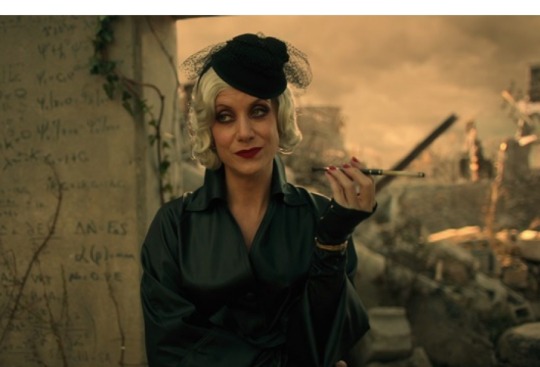
The Handler: a mysterious woman, an higher-up in the Commission who keeps offering Five deals. She is completely unconcerned about the end of the human race, seeing it simply as something that had to happen.
THEMES
Grief is a theme that receives several elaborations in this episode. It is expressed in its most classical form - the death of a loved one - by Diego and Klaus. The first throws himself into vengeance, barely giving himself a moment to mourn Eudora's death; Klaus, who has nobody to take vengeance on, instead does nothing but openly grieve. He cries, he seeks comfort in his siblings, he tries to retrieve tokens of his time with David (the photo in the vet bar) without caring about what other people could think of him. Still, he doesn't try to summon David's ghost, like Diego suggested; his trauma about his powers runs too deep, and his brother doesn't quite get it.

But there is another one who is grieving here: Five, who is grieving a whole world. This 'kid' has already grown up, completely alone, after finding himself stuck in a devastated world, the corpses of his siblings still warm in front of him. He had nobody to talk to save for a mannequin, nobody to comfort him. The entire human race was gone, and it was years before the Commission deigned itself to rescue him. Now, he has a possibility to avert that horror, and it's driving him mad. He has already seen what will happen if he fails, but he doesn't know what to do, and ends up running circles and talking about killing people (the only thing he has been taught to do in these circumstances) to run from his own fear.
While all of these people are busy dealing with grief, Viktor deals with coming into his own as a person. He has a relationship, maybe the first of his life, he is starting to get forward professionally; and here comes Allison with doughnuts from the shop they visited as kids, and uncalled for relationship advice. Viktor's reaction to feeling himself infantilized is vicious, hitting Allison where he knows it hurts. The gap between the two siblings, after some steps towards closing, is now larger than ever. And Leonard, despite looking like the perfect person, is now esposed to the audience as the last person you should have a coming of age with.
SYMBOLISM

Delores: the only form of interaction Five had during the apocalypse years. While he is awfully fond of her, this episode makes clear that a synthetic creature, whose identity he had completely made up, couldn't hold a candle to actual human interaction and especially Five's family. Notice how in the scene where the Handler proposes the first deal to him, she has a plastic arm extended towards him, in the same pose as the Handler, as if to call Five back to her and the world of solitude she represents. Ultimately, she is abandoned in favor of the Commission.
Allison's sweets: a nice treat she brings for Viktor, right from the place they went as children! Unfortunately Viktor's agenda is already full with a date with Leonard in another cafe. The sweets represent Allison's difficulties in realizing that both she and Viktor are adults now, they have ignored each other for years and she can't just go back to a childhood solidariety they didn't manage to develope back then. She had taken for granted that Viktor would have had nothing else to do, and the childhood treats are casted aside for an adult romantic rendezvous.
Dave's dog tags: a memento of his love that Klaus has taken to carry everywhere, here they become a symbol of the complicated grief that's to come.
REFERENCES
• We are shown some of the works Five had to complete for the Commission; among them we can see footage of the Hindeburg dirigible and of Josef Stalin.
• We see some bits of Viktor's book that Five used to write on his plans for returning to his timeline. It's a bit difficult to read, but there is some incident involving Diego, an open accusation that Hargreeves was the one to initiate Viktor's alienation process, and a mention that Allison used to do Klaus' nails.
And this is all for the episode. Thank you for reading so far!
If you like my analysis, you can support it by reblogging it or by offering me a coffee (link in first reblog)
#tua#the umbrella academy#tua meta#tua analysis#tua luther#tua diego#tua allison#tua klaus#tua viktor#tua handler#tua hazel#tua cha cha#tentative analyses#tentative analyses: the umbrella academy
16 notes
·
View notes